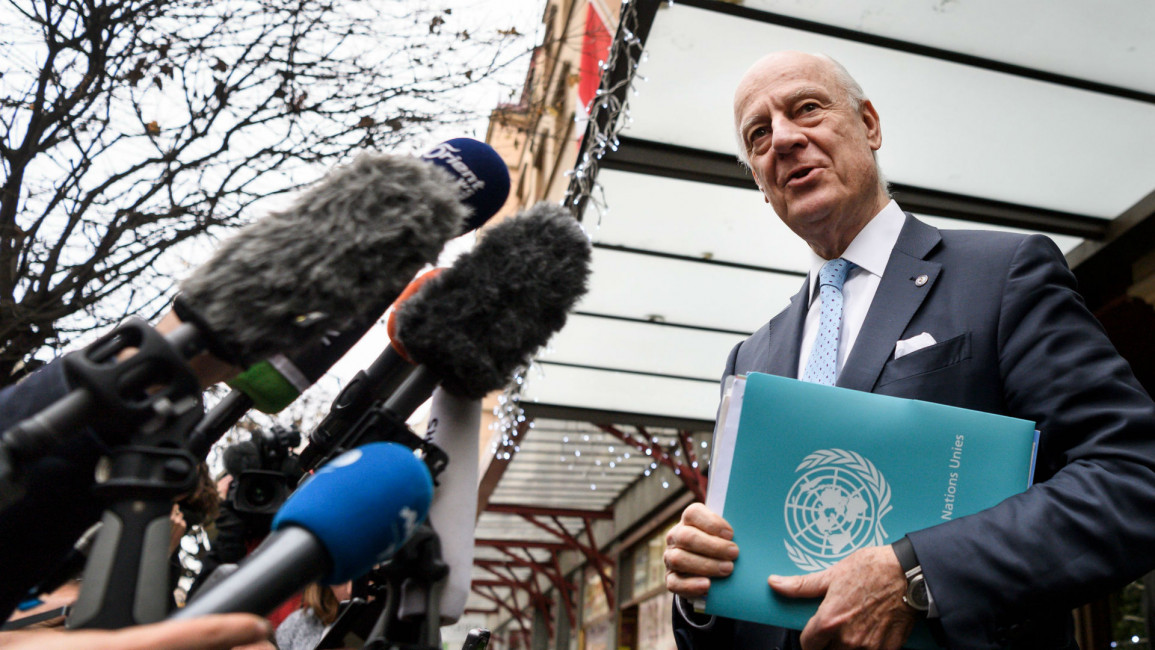For the first time, United Nations Western Sahara envoy De Mistura visits disputed territory
The United Nations envoy for Western Sahara, Staffan de Mistura, arrived in the disputed territory on Monday, 4 September, for the first time since his appointment in an attempt to advance the political process of the five-decade-long conflict.
"[Mistura] was looking forward to conducting visits in the region and meetings, engaging all concerned ahead of the issuance of the report of the Secretary-General to the Security Council in October," said the UN in a press release.
Over the next few days, the UN envoy will hold several meetings with the parties concerned, including local authorities, elected representatives, sheikhs and notables of the Saharawi tribes and local civilian activists.
Morocco fought a 15-year war with Algeria-backed Polisario Front separatists after Spain withdrew from its former colony in 1975.
The UN formally recognises neither Moroccan nor Polisario Front's sovereignty over the disputed territory of Western Sahara.
In 1991, the UN established a peacekeeping mission to monitor a ceasefire and organise a referendum on the territory's status.
The vote was set for 1992 but was suspended after Morocco refused to accept any vote that allowed for the territory's independence, saying that only "autonomy" was on the table.
In 2006, Morocco presented its autonomy plan regarding the territory, which should allow Sahrawis to run their affairs "democratically" through legislative, executive, and judicial bodies while Rabat retains control over the defence and foreign relations.
For its part, the UN has backed the plan, yet the Polisario Front rejected Rabat's proposal and continues to call for an independent state for Sahrawis.
Since then, numerous UN-sponsored talks have failed to make a breakthrough, each side further entrenched in their positions.
Monday's UN statement said de Mistura's trip would focus "on the prospects of constructively advancing the political process on Western Sahara in the course of these regional engagements."
UN chief Antonio Guterres named de Mistura his envoy for Western Sahara in October 2021. Since then, he has visited Morocco twice in January and July 2022. He has also visited Algeria, Mauritania and the Tindouf camps. But until now, he had not set foot on the disputed territory.
Over the past two years, Mistura has been harshly criticised for "his absence from the public eye" and the "lack of vigour" on the conflict.
Mistura's visit to Western Sahara comes at the heels of the meeting of US Assistant Secretary's deputy, Josh Harris, with the Polisario Front leadership in Tindouf, southwestern Algeria.
According to the US State Department statement, Harris visited Tindouf on 31 August to consult with a group of partners, including the Polisario separatist movement's leader, Ibrahim Ghali, as well as UN agencies, non-governmental organisations and humanitarian agencies.
"Harris underscored the importance of full support for and engagement with UN Personal Envoy of the Secretary-General Staffan de Mistura, in a spirit of realism and compromise, as he intensifies efforts to realise an enduring and dignified political solution for the people of Western Sahara," reads the statement shared on X, formerly known as Twitter.
Since recognising Morocco's sovereignty over the territory in 2020, the US has become a key player in the conflict, stepping up diplomatic moves to prevent further deterioration of relations between Morocco and Algeria, Polisario's long-standing partner.
Over the past five decades, Western Sahara put the Moroccan-Algerian disaccord on a continuous diplomatic standoff, with border closures and envoys recalled whenever tensions mount. Algiers cut diplomatic ties with Rabat in 2021 and closed borders.
Mistura is set to submit his final report on the conflict next October to the United Nations Security Council.
In the report, the UNSG briefs the international community, including the Security Council, on the latest developments in the long-standing regional dispute.
The report will be followed by a UN Security Council meeting, where its member states will vote to extend the mandate of UN peacekeeping operation MINURSO.


![President Pezeshkian has denounced Israel's attacks on Lebanon [Getty]](/sites/default/files/styles/image_684x385/public/2173482924.jpeg?h=a5f2f23a&itok=q3evVtko)



 Follow the Middle East's top stories in English at The New Arab on Google News
Follow the Middle East's top stories in English at The New Arab on Google News


